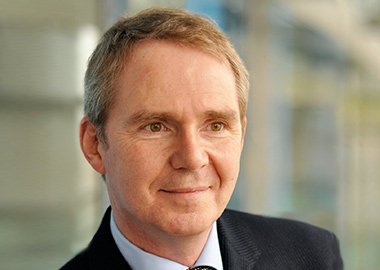"open data economy" entries

Linking open data to augmented intelligence and the economy
Nigel Shadbolt on AI, ODI, and how personal, open data could empower consumers in the 21st century.
After years of steady growth, open data is now entering into public discourse, particularly in the public sector. If President Barack Obama decides to put the White House’s long-awaited new open data mandate before the nation this spring, it will finally enter the mainstream.
As more governments, businesses, media organizations and institutions adopt open data initiatives, interest in the evidence behind release and the outcomes from it is similarly increasing. High hopes abound in many sectors, from development to energy to health to safety to transportation.
“Today, the digital revolution fueled by open data is starting to do for the modern world of agriculture what the industrial revolution did for agricultural productivity over the past century,” said Secretary of Agriculture Tom Vilsack, speaking at the G-8 Open Data for Agriculture Conference.
As other countries consider releasing their public sector information as data and machine-readable formats onto the Internet, they’ll need to consider and learn from years of effort at data.gov.uk, data.gov in the United States, and Kenya in Africa.
 One of the crucial sources of analysis for the success or failure of open data efforts will necessarily be research institutions and academics. That’s precisely why research from the Open Data Institute and Professor Nigel Shadbolt (@Nigel_Shadbolt) will matter in the months and years ahead.
One of the crucial sources of analysis for the success or failure of open data efforts will necessarily be research institutions and academics. That’s precisely why research from the Open Data Institute and Professor Nigel Shadbolt (@Nigel_Shadbolt) will matter in the months and years ahead.
In the following interview, Professor Shadbolt and I discuss what lies ahead. His responses were lightly edited for content and clarity.
Read more…

Investing in the open data economy
Open Data Institute CEO Gavin Starks on how open data's current state is similar to the World Wide Web's early days.
If you had 10 million pounds to spend on open data research, development and startups, what would you do with it? That’s precisely the opportunity that Gavin Starks (@AgentGav) has been given as the first CEO of the Open Data Institute (ODI) in the United Kingdom.
 The ODI, which officially opened last September, was founded by Sir Tim Berners-Lee and Professor Nigel Shadbolt. The independent, non-partisan, “limited by guarantee” nonprofit is a hybrid institution focused on unlocking the value in open data by incubating startups, advising governments, and educating students and media.
The ODI, which officially opened last September, was founded by Sir Tim Berners-Lee and Professor Nigel Shadbolt. The independent, non-partisan, “limited by guarantee” nonprofit is a hybrid institution focused on unlocking the value in open data by incubating startups, advising governments, and educating students and media.
Previously, Starks was the founder and chairman of AMEE, a social enterprise that scored environmental costs and risks for businesses. (O’Reilly’s AlphaTech Ventures was one of its funders.) He’s also worked in the arts, science and technology. I spoke to Starks about the work of the ODI and open data earlier this winter as part of our continuing series investigating the open data economy.
What have you accomplished to date?
Gavin Starks: We opened our offices on the first of October last year. Over the first 12 weeks of operation, we’ve had a phenomenal run. The ODI is looking to create value to help everyone address some of the greatest challenges of our time, whether that’s in education, health, in our economy or to benefit our environment.
Since October, we’ve had literally hundreds of people through the door. We’ve secured $750,000 in matched funding from the Omidyar Network, on top of a 10-million-pound investment from the UK Government’s Technology Strategy Board. We’ve helped identify 200 million pounds a year in savings for the health service in the UK. Read more…